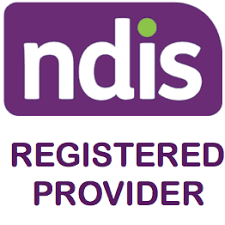Apps
Definition of Cerebral Palsy
Cerebral palsy is a neurological disorder that affects movement, posture, reflexes, balance, muscle tone and coordination. This condition is caused by abnormal brain development or damage to the developing brain affects a person’s ability to control their muscles.
Causes of Cerebral Palsy
Cerebral palsy is caused by abnormal brain development or injury that occurs to the parts of the brain that control movement, coordination and posture. The damage can occur to the brain as it develops before birth, during birth or in the first two years of life. In some cases, the condition is caused by lack of oxygen to child’s brain during birth.
Additionally brain damage leading to Cerebral palsy can happen before birth, within a month after a child’s birth or within the first years of a child’s life when the brain is still developing. Depending on the specific cause, one would be having Congenital Cerebral palsy (brain damage that happened before or during birth) or Acquired Cerebral palsy (brain damage that occurs more than 28 days after birth and associated with an infection (such as meningitis) or head injury).
Types of Cerebral Palsy
- Spastic cerebral palsy – this means stiff or tight muscles and increased tone which affects the range, accuracy and strength of movement.
- Athetoid cerebral palsy –this means uncontrolled and involuntary movements.
- Ataxic cerebral palsy – this means difficulties with balance, coordination, controlling shaky movements and tremors that occur with voluntary movement.
- Mixed type cerebral palsy – this means a combination of symptoms of more than one type of cerebral palsy.
Symptoms of Cerebral Palsy
Symptoms vary depending on the type and severity of the cerebral palsy and may even change over time. Symptoms include:
- Delays in reaching motor skill milestones (e.g. sitting, rolling or crawling).
- Delays in speech development and difficulty speaking.
- Having exaggerated reflexes.
- Lack of muscle coordination.
- Uncontrolled body movements.
- Problems with balance and coordination.
- Feeding and swallowing difficulties.
- Preference to use one side of the body to reach for things.
- Variations in muscle tone i.e. low muscle tone (e.g. being floppy, weak or limp) or increased muscle tone (e.g. being too stiff).
- Tremors or involuntary movements.
Some other conditions that may occur in association with the cerebral palsy include:
- Seizure disorders.
- Intellectual disabilities.
- Learning difficulties.
- Bladder and bowel control difficulties.
- Gastrointestinal disorders.
- Hearing impairment.
- Vision impairment.
- Speech and language disorders.
Behaviour Help
If you are supporting an individual with this diagnosis, please refer to our services and resources. They aim to help children, adolescents and adults achieve better communication, social, emotional, behavioural and learning outcomes. So whether you are wanting guidance on parenting, teaching, supporting or providing therapy, Behaviour Help is at hand.
Note: This is not an exhaustive list of all the possible causes, symptoms and types but some general information that can be further explored. Based on what you have read if you have any concerns about an individual, please raise them with the individual/s. The caregiver can then raise these concerns with their local doctor who can provide a referral to the relevant professional (e.g. paediatrician, psychologist, psychiatrist, allied health professional and learning specialists) for diagnosis and treatment if appropriate.
Get Started with Behaviour Help App
Assess-manage-prevent behaviours of concern efficiently and effectively with the Behaviour Help App.



